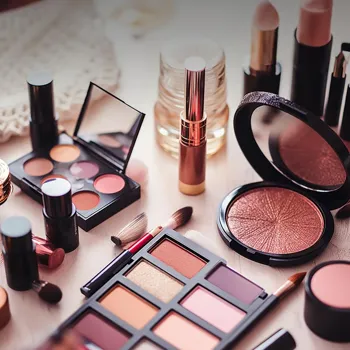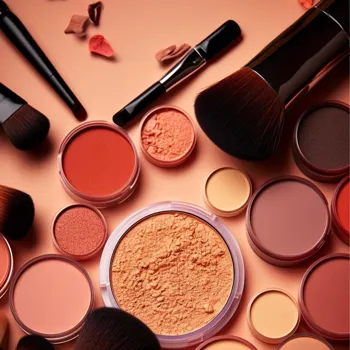Unlock the secrets of makeup ingredients! Learn to decode labels & make informed choices for healthy skin. Read more!
In today's world, makeup is almost like a daily companion for many Indian women whether
it's a light touch-up for work or a full glam look for a special occasion. But, amidst the endless choices, understanding what exactly goes into your makeup can feel like decoding a secret code.

The beauty industry is filled with promises of radiant skin and flawless finishes, but it is really important to look beyond the pretty packaging and understand the actual ingredients in your products.
This article aims to demystify the labels and help you make informed choices that are good for your skin and overall well-being. After all, knowledge is power, especially when it comes to something you apply directly onto your face every day.
Navigating makeup ingredients: understand types and effects for clearer choices
Navigating the world of makeup ingredients can seem overwhelming, with long names and complex chemical structures. However, breaking down these ingredients into simpler categories can make the process a lot less daunting.

First, familiarize yourself with the basic types of ingredients commonly found in makeup products. These include pigments which gives the product its colour, binders that hold everything together, preservatives that keep the product fresh, and emollients that soften and smooth the skin.
Once you understand these basic categories, you can start identifying specific ingredients within each group and learning about their potential effects on your skin. Pay attention to ingredients that might cause irritation or allergic reactions, especially if you have sensitive skin.
Avoid harmful ingredients in cosmetics for better health
Now that you know a little bit about the different types of ingredients, let's discuss some specific ingredients that you might want to avoid, or at least be cautious about. Parabens are preservatives that were once widely used in cosmetics, but now are linked to hormone disruption.

Phthalates are often found in fragrances and nail polishes, and they have also raised concerns about their potential impact on health. Synthetic fragrances, although they smell pleasant, can be a major source of irritation for people with sensitive skin or allergies.
Instead, look for products that use natural fragrances or essential oils. Furthermore, be mindful of heavy metals like lead and mercury.
Popular skin-friendly ingredients: hyaluronic acid, vitamin C, ceramides
Now, let’s talk about some ingredients that are generally considered beneficial or safe for your skin. Hyaluronic acid is a popular ingredient known for its hydrating properties. It helps to draw moisture into the skin, making it appear plump and supple.
Vitamin C is an antioxidant that protects the skin from damage caused by free radicals. It also helps to brighten the complexion and reduce the appearance of dark spots. Ceramides are lipids that naturally occur in the skin. They help to strengthen the skin's barrier and prevent moisture loss.
When choosing products, look for these ingredients, as they are known for their gentle and nourishing qualities.
Ingredient lists prioritize key elements for skin needs
Ingredient lists are typically organized with the ingredients listed in descending order of concentration. This means that the first few ingredients listed make up the bulk of the product.

Pay close attention to the first five to seven ingredients, as these are the ones that will have the most significant impact on your skin. If the ingredient list starts with water, it means that the product is primarily water-based, which can be a good choice for oily or combination skin.
If the list starts with an oil or butter, it indicates that the product is richer and more moisturizing, which can be beneficial for dry skin. Consider your skin type and choose products that are formulated with ingredients that are suitable for your needs.
Select makeup products carefully for skin health
While understanding ingredients is essential, it's equally important to consider other factors when selecting makeup products. Look for products that are non-comedogenic, meaning they won't clog pores. This is especially crucial if you have acne-prone skin.

Also, consider products that are hypoallergenic, which means they are less likely to cause allergic reactions. Patch testing new products on a small area of your skin before applying them to your entire face is always a good idea.
Be sure to read reviews and do your research to get an understanding of what type of makeup product works for you.
AI Generated Content. Glance/InMobi shall have no liability for the content











